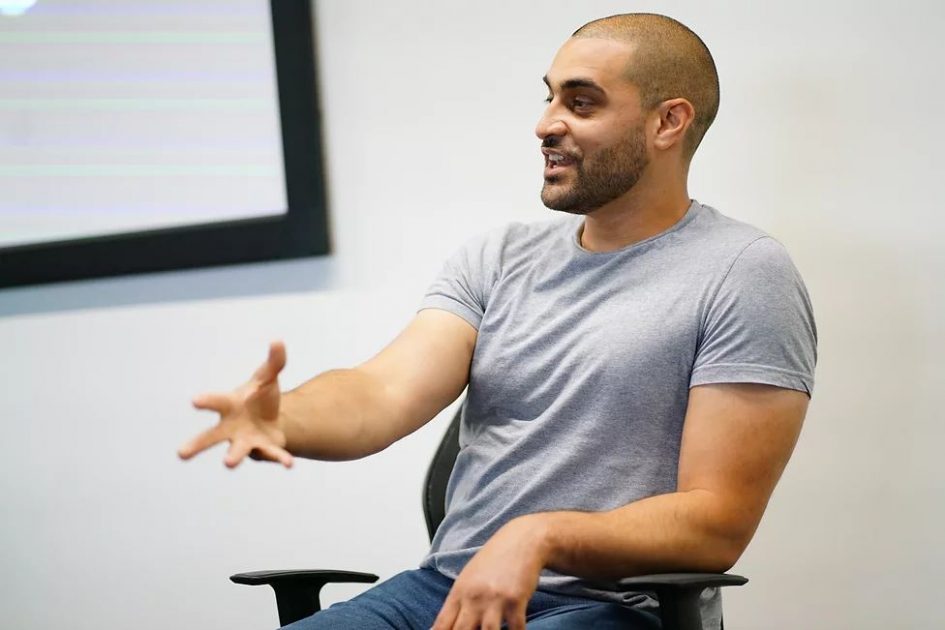By Alice O’Malley-Woods
What is the relationship between sound and social justice? In May 2022, University of Brighton hosted Sonic Rebellions (CAPPE sponsored), a two day conference designed and managed by rapper and PhD researcher Wanda Canton. The interdisciplinary conference brought together academics, artists, and activists to answer the above question through a series of lectures, interactive workshops, installations, and discussion panels. Topics covered a vast array of research areas from a range of disciplines, including political philosophy and psychoanalysis as well as sound studies and cultural media.

Delegates and attendees at Sonic Rebellions by Kamal Badhey
What tied these disciplines together was a strong researcher focus on social justice, particularly an exploration of decoloniality, anti-racism, and solidarity. This shared focus was brought together in the final talk from keynote speaker Lowkey MC, who shared his thoughts on the music industry, sharing platforms, and Grenfell. His message was “resistance is fertile, not futile”
The conference was a great success, and many delegates have contacted CAPPE since to offer their positive reflections on the impact the weekend had on their professional, academic, and personal development. In particular, there were some outstanding contributions and reflections from early-career academics.
Composer and researcher Elizabeth Veldon (Edinburgh Napier University), delivered a challenging and stimulating lecture exploring the manner in which normative musical practice depends on the unpaid labour of audiences. Their presentation, titled “Towards an Anti-Capitalist Music” showcased and interrogated findings of Elizabeth’s research into non-exploitative audience-led improvisation. “The main highlight of the conference for me was being around so many people who were entering social justice and anti-capitalism in their music. Additionally, as a very early career academic I found the conference incredibly supportive, affirming and liberating and I have formed relationships with some of the others at the conference and through them with other academics.” Elizabeth Veldon.

Markus Hetheier by Kamal Badly
In his lecture ‘Between Anarchy and Participation. DIY Culture in the Electronic Music Scene in Manchester’, Markus Hetheier (Manchester Metropolitan University) investigated the way in which DIY musicians can develop strong, authentic business models to become resilient against corporate music business and as a result more sustainable. The qualitative research that served as the foundation for his presentation was based in Manchester, where Markus is completing his PhD.
“The Sonic Rebellions conference was the first in person conference outside of my university that I attended since starting my PhD in Autumn 2020. It was a great opportunity for me to present my research on DIY culture in Manchester’s electronic music scene. It also allowed me to become part of an international network of artists/researchers investigating the political dimension of sound. Overall, the conference was a great mix between paper presentations, panel discussions and artistic performances. There was a sense of celebration to the weekend and we agreed that it felt like the beginning of something new”. Markus Hetheier
Edward Martin (Edinburgh University) delivered a moving and intriguing workshop demonstrating his investigations into how disrupted sound can be used to communicate ecological issues, specifically the enormity of biodiversity loss.This exciting project aims to find new ways of emotively communicating scientific data sets in order to encourage climate justice.

Edward Martin (right) by Kamal Badly
“A highlight of Sonic Rebellions was the diversity of participants, all of whom think sincerely about sound. Many of us who work with sound are interdisciplinary, and this collaborative spirit was imbued into the conference. This openness led to a personal high point – receiving inspiring feedback on my research from bright and enthusiastic people who thought so differently to myself. My research has improved through the valuable insights of conference attendees: I’m now working in the new directions suggested.” Edward Martin
Conference organiser Wanda Canton is an artist, activist, and researcher, currently completing her doctorate at the University of Brighton, exploring the relationship between UK Drill, knife violence, and rap as a decolonial epistemology. In her presentation “In Defence of Drill: Rap & Abolition” she challenged misconceptions of UK Drill rap music, with particular attention to the censorship and criminalisation of artists, arguing that instead we must develop a willingness to listen and “deconstruct the cop in our own head” as a central to abolitionist praxis.

Wanda Canton by Kamal Badhey
To read more about Sonic Rebellions, and to find out more about Wanda Canton’s work and research, please visit her website: https://www.wandacanton.co.uk/sonicrebellions
Here you will find a link to a JISC Mailing List to stay in touch and keep updated about future Sonic Rebellions events that are currently in development.
CAPPE would like to take this opportunity to thank Wanda Canton for an inspiring and motivating conference, and to thank all the delegates for sharing their research and expertise.





Leave a Reply